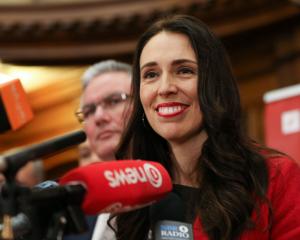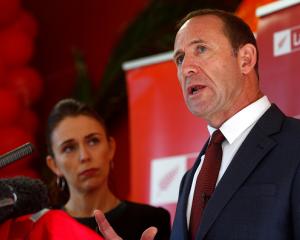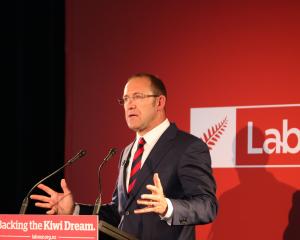Early reaction to the Labour Party's annual conference last weekend had elements of evangelistic enthusiasm - and not just from the delegates.
There is an undercurrent of public and Labour Party opinion which desires a return to the assumed "safety" of the past, especially at a period in historical political terms when radical change is apparent on a global scale.
That change is not confined to politics, but to economics including capitalism itself, to social order, to the environment. It is an unsettling time, for the certainties of the recent past have collapsed.
Labour's thinkers have responded necessarily at this mid-term conference rather than next year because its leader must contest the election with new - and attractive - policies to counter an entrenched Government, to "sell itself" as the government-in-waiting with a leader capable of being prime minister.
Phil Goff's keynote speech sounded exactly as if it had been written to suit this purpose.
Parts of his speech have been interpreted as being a rejection of Labour's post-1990 half-hearted attachment to the "Rogernomics" of the 1980s, which turned traditional Labour upside down; indeed, for many supporters it abandoned socialist principles altogether.
Helen Clark and Michael Cullen's pragmatism attempted, not very successfully, to embrace market capitalism while restoring elements of welfarism, disguised as democratic socialism or, in Tony Blair's Britain, "Third Way" policies.
Mr Goff's speech, and other policy activity at the conference, appeared to create the groundwork for a new/old Labour Party programme.
It may be some time before clarity emerges, although there are grounds to believe the party's expectation of a clear difference between it and the National Party will interest voters by the general election.
The trouble with evangelism, however, is that ideals need eventually to be expressed in deeds. They must also be convincingly marketed.
Mr Goff's biggest problem may yet be to show his change of heart is genuine: he was, after all, a free-trader and a minister who sought free trade deals; he was also a minister in a cabinet which happily approved the sale of hundreds of thousands of hectares of land to overseas interests.
As to the latter, to now propose severely limiting sales cannot be viewed in isolation from other economic policy, and none has been seen, yet.
Some expert comment has noted if overseas buyers are banned from purchasing local assets they are unlikely to want to hold New Zealand dollars, which would quite rapidly cause the Kiwi to fall in value, making imports much more expensive and deterring lending from overseas.
Nor do we know what Mr Goff's plans are to restore balance to an economy from which it has been absent since the early 1970s.
The not inconsiderable philosophical issue of the State intervening in private property ownership has also not been explained by Mr Goff, nor its implications debated - even as the National-led Government itself speaks of stricter overseas investment rules.
If, as seemed the desired "spin" from the conference, Labour wants to return to a form of economic nationalism, Mr Goff and his colleagues must explain quite how a nation so dependent as ours on export trade and borrowed money for survival - and its people's standard of living - is going to manage when every other indebted trading nation is desperately looking for buyers as well.
What this kind of policy change can mean in practical terms for families needs to be spelled out, and its risks clarified.
For example, Labour's proposed policy of banning GST on fresh fruit and vegetables is superficial to the point of worthlessness without greater clarity as to the specifics of its application, exemptions, its fiscal cost, and the opportunity cost of foregone revenue.
Proposals for a "fairer" system of taxation traditionally crop up every three years from all parties, Labour being no exception, but people pocketing the gains from the Government's actual changes this month are entitled to know just what is proposed by Labour.
The wealthy will face higher taxes under Mr Goff, for sure, but what about the middle-class property investors who kept Helen Clark and company in power for nine years, and who may be the targets for a capital gains tax should Labour form a government?
Higher taxes will help pay for the unfunded gaps in Labour's "economic nationalism", and Mr Goff and his colleagues might with some justice argue that only policy in general rather than in detail can be announced now, although that leaves Labour open to charges that it is simply seeking populist support.
Still, it is most unlikely National or Act New Zealand would adopt such programmes - although the ghost of New Zealand First will view them with approval, and the Greens applaud from the sidelines.









